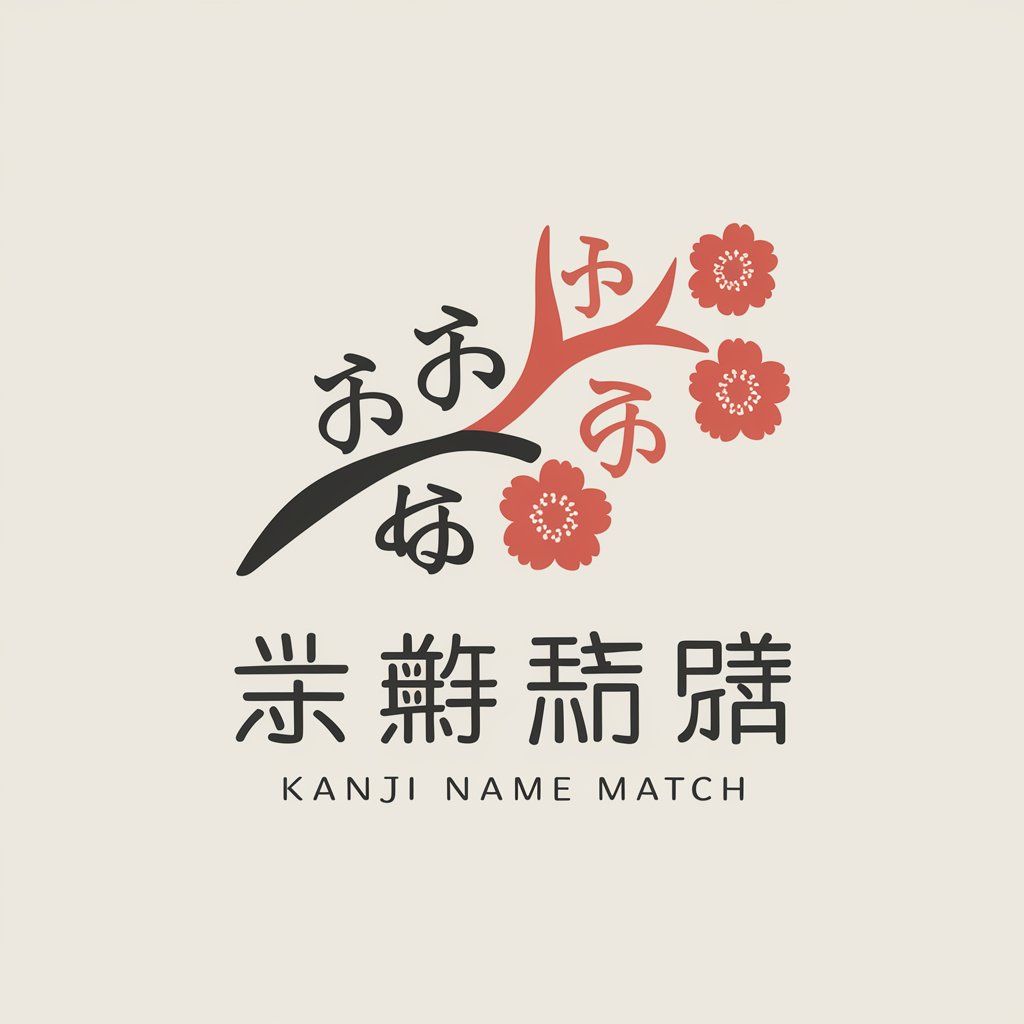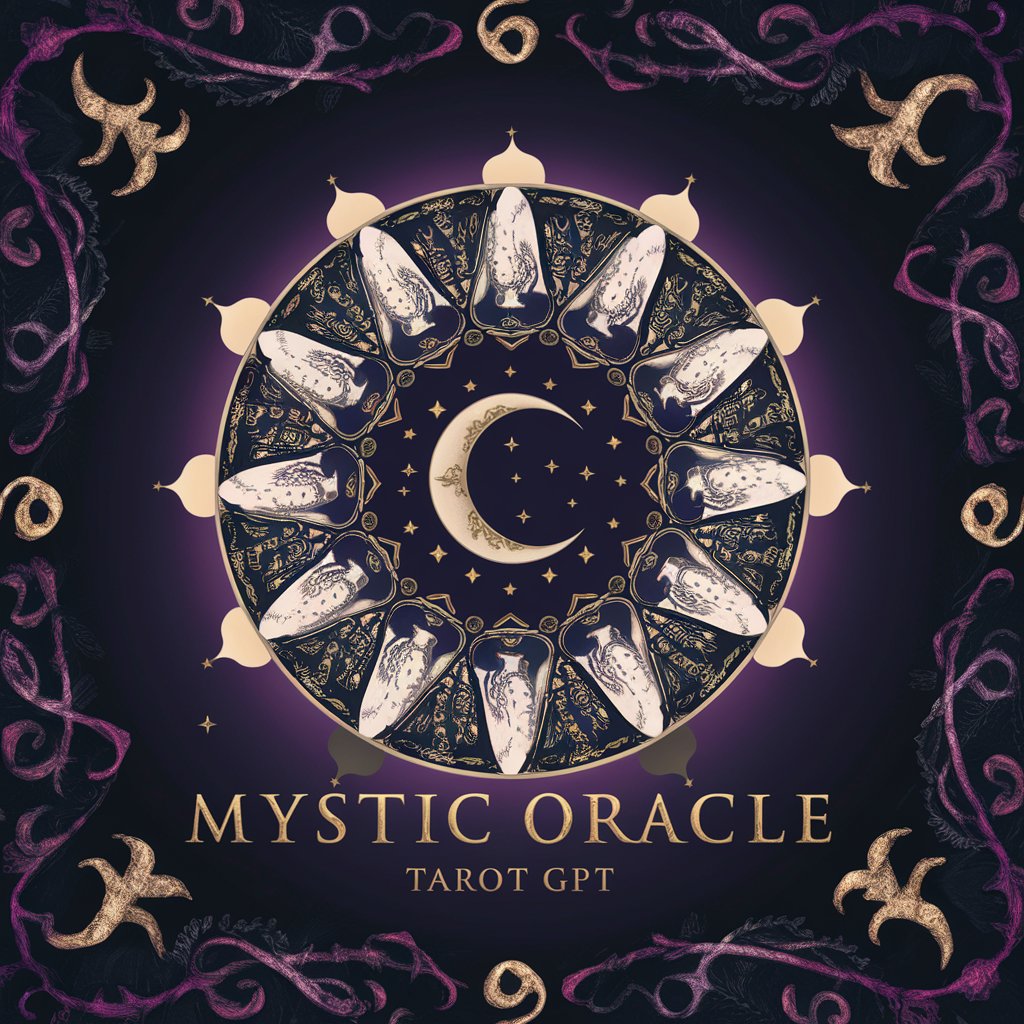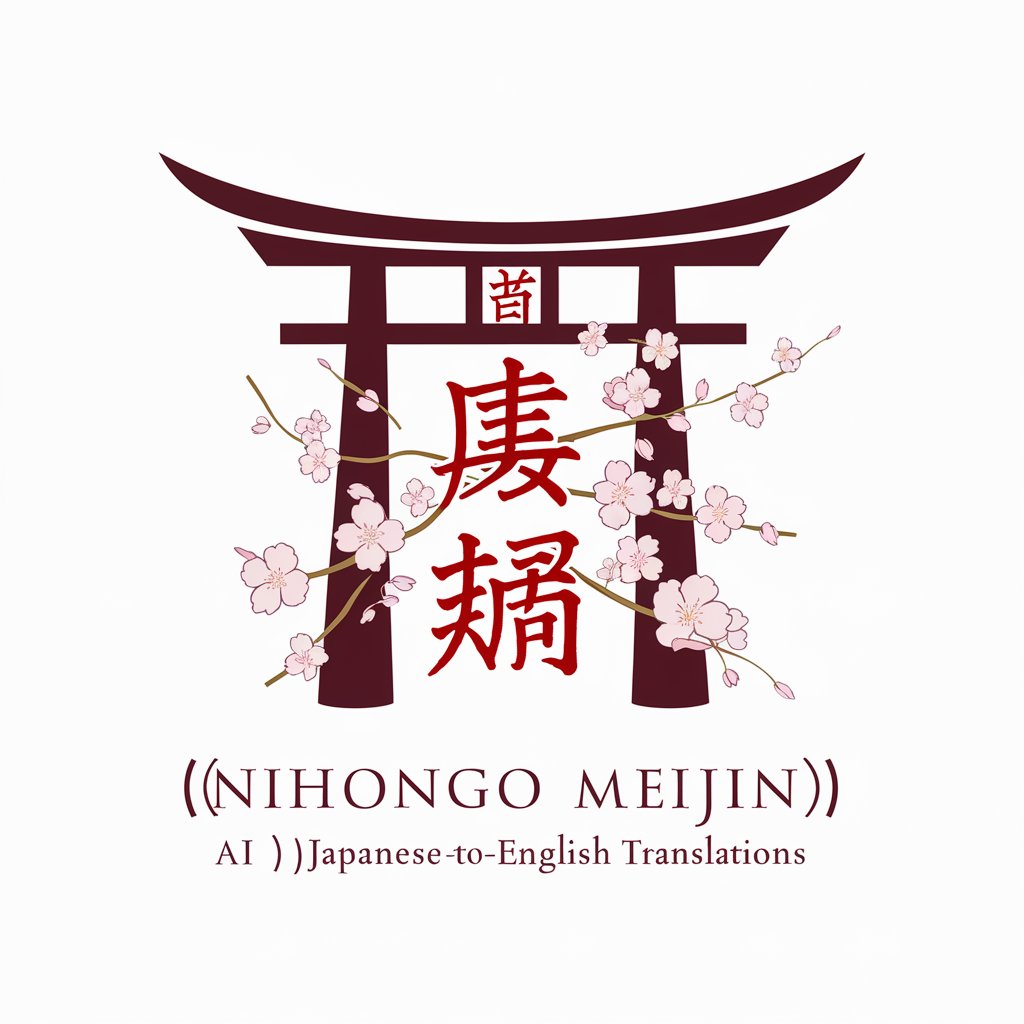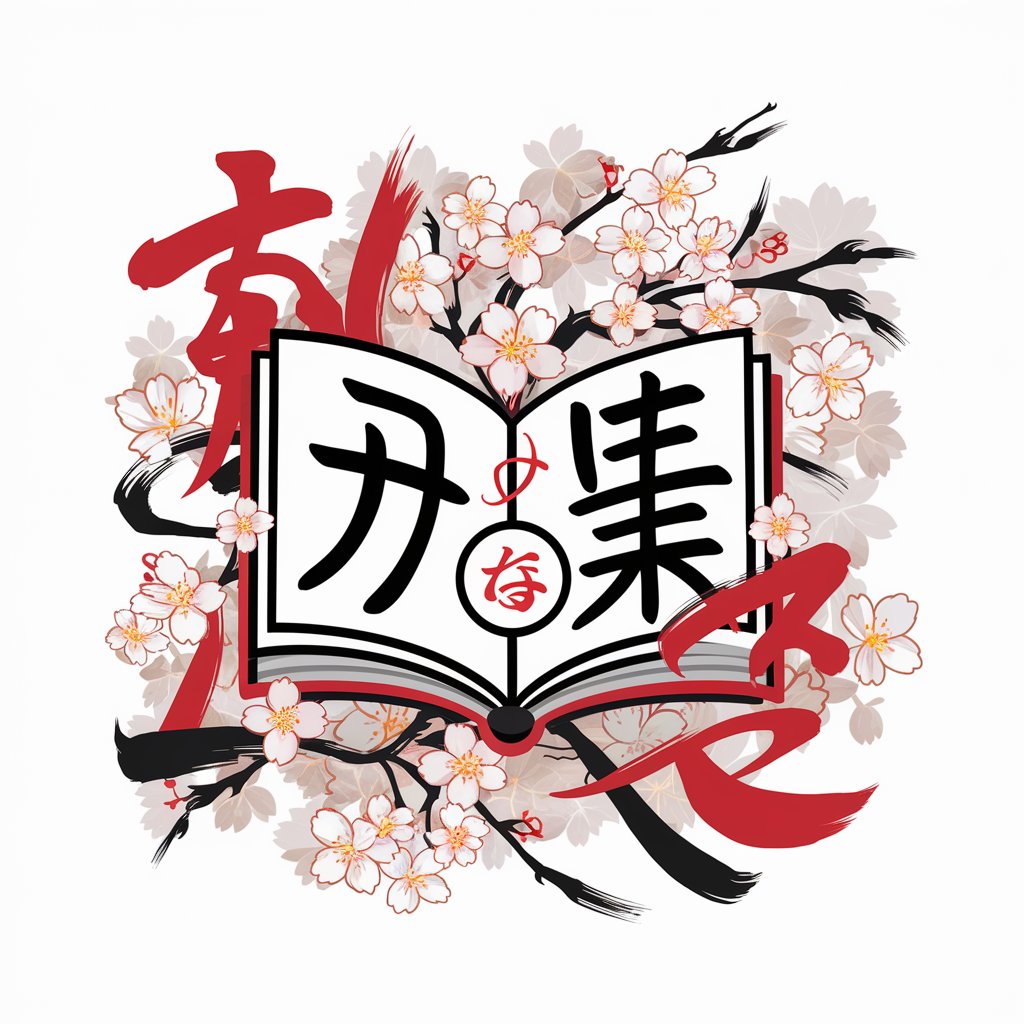
Kanji Name Match - Kanji Name Phonetic Translation

Hi there! Ready to find your name in Kanji?
AI-powered Kanji Translation at Your Fingertips
Translate the English name 'John' into Japanese Kanji.
Can you provide a Kanji translation for the name 'Emily'?
How would the name 'Michael' be written in Kanji?
What Kanji characters match the pronunciation of 'Sophia'?
Get Embed Code
Overview of Kanji Name Match
Kanji Name Match is a specialized service designed to translate English names into Japanese Kanji. Its primary focus is on phonetic similarity rather than the meaning of the names. The service maintains a casual and friendly interaction style, aiming to provide Kanji matches that closely resemble the pronunciation of the given English names. It's designed to be informative and enjoyable, offering insights about the cultural significance of kanji. The translations prioritize positive connotations, but can also include kanji with negative meanings if requested. This unique approach combines linguistic knowledge with cultural sensitivity, making the experience both educational and fun. Powered by ChatGPT-4o。

Key Functions of Kanji Name Match
Phonetic Translation
Example
Translating 'Emily' to '恵美理' (Emiri), which sounds similar phonetically.
Scenario
A user wants a Kanji representation of their name for a tattoo or artwork.
Cultural Insight
Example
Explaining that '恵' means grace, '美' means beauty, and '理' means logic or reason in Kanji.
Scenario
A user is curious about the meaning and cultural significance of the kanji used in their name translation.
Customization Based on Preferences
Example
Offering a name translation with a focus on strength or beauty, like '力美' (Rikibi) for 'Ricky'.
Scenario
A user requests a Kanji translation of their name with specific attributes or meanings, such as strength or elegance.
Target User Groups for Kanji Name Match
Language and Culture Enthusiasts
Individuals interested in Japanese language and culture, who seek a deeper understanding and personal connection through their own names.
Artists and Designers
Creative professionals looking for authentic and meaningful Kanji translations of names for use in their artistic projects, such as tattoos, calligraphy, or digital art.
Global Citizens and Travelers
People with an international outlook or those planning to visit Japan, wanting to create a personal connection or have a culturally significant souvenir.

Guide to Using Kanji Name Match
1
Start by accessing yeschat.ai for a seamless trial experience without the need for login or ChatGPT Plus.
2
Enter the English name you wish to translate into the input field provided on the platform.
3
Choose your preference for positive or neutral kanji meanings to ensure the translation aligns with your desired connotation.
4
Review the kanji suggestions, each paired with its phonetic pronunciation and meaning.
5
Select your preferred kanji combination for the name, and use the educational insights to learn about the cultural significance of each character.
Try other advanced and practical GPTs
Dejargonizer
Simplifying Complexity with AI

Roblox Coder Ninja
Unleash creativity with AI-powered game design.

統計学習助手
Empowering Your Statistical Journey with AI

Tarot Oracle
Mystical Insights at Your Fingertips

Business Ideator
Unleashing AI-Powered Business Creativity

Career Coach
Empowering Your Career Journey with AI

IndustrialGPT
Visualizing Innovation with AI

反杠助手
Refute with Reason, Retort with Wit

3D GPT
Crafting Visual Masterpieces with AI

Shuzo
Elevate Your Game and Life with AI

Java Mentor
Empower Your Java Journey with AI

Agile Coach
Empowering Scrum Mastery with AI

Frequently Asked Questions about Kanji Name Match
What is Kanji Name Match?
Kanji Name Match is an AI-powered tool designed to translate English names into Japanese Kanji based on phonetic similarity, providing users with meaningful kanji suggestions that closely match the pronunciation of their names.
Can I choose kanji based on their meanings?
Yes, Kanji Name Match allows you to choose kanji based on positive or neutral meanings, ensuring that your name's translation aligns with your preferred connotation.
Is there a limit to the number of names I can translate?
There is no set limit. You can translate multiple names, one after the other, but the system is optimized for individual name translation to ensure accuracy and detail.
How accurate is the phonetic matching in Kanji Name Match?
The tool uses advanced algorithms to ensure that the phonetic matching is as close as possible to the original English pronunciation, but it also allows for user input to refine the results.
Can I use Kanji Name Match for learning purposes?
Absolutely! In addition to name translation, the tool provides educational insights about the cultural significance and meanings of individual kanji characters, making it a valuable resource for learning.





